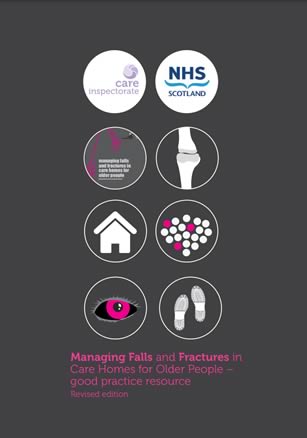Why do falls happen to care home residents?
It is often a combination of reasons that leads to a fall. Here are a few possible things that might be involved:
- Health – e.g. eyesight, pain, strength or hydration
- Medication – too many medications or certain types
- Environment – e.g. furniture, lighting, noise
- Other factors – e.g. footwear or walking aids
If they do happen, how can they be managed?
All care homes have plans for how to manage a fall. These can vary, but usually involve:
- Assessing the resident where they are to make initial decisions
- Giving first aid and calling emergency help if needed
- If suitable, using trained techniques and sometimes equipment to help them up
- Reassessing, getting further advice or help if needed, and monitoring
- Recording all information, and where appropriate reporting
How can care homes reduce falls?
As falls have many reasons there is not one simple answer to this question. By recording information care homes can learn from patterns of falls. The patterns can be in individuals or across the home.
Along with specialist advice, input and resources they can find ways to reduce falls. Examples include:
- Checking footwear and foot health
- Physical activity programmes
- Good nutrition and hydration for residents
- Medication reviews
- Checking walking aids, hearing aids and glasses
- Staff training and ensuring good staffing levels
- Ensuring a safe environment
Managing Falls and Fractures in
Care Homes for Older People –
good practice resource
A helpful guide from the Care Inspectorate and NHS Scotland.
Where can I get more information?
If you are concerned about a care home resident having falls or at risk of falls you can contact:
- Care home staff or management
- Scottish Care Inspectorate – Guidance on Falls and Fractures
- City of Edinburgh Council via Social Care Direct
- Scottish Care (independent care homes)
- Physical Activity for those living in Care Homes
Falls Awareness Week Resources
Falls are not an inevitable part of getting older and there are things we can all do to reduce them, while promoting safer mobility, and good quality of life for all individuals living in our care homes.
Posters are available to display in your Care Home:
Deconditioning Prevention
Medication Review
Nutrition and Hydration
Safer Environment
Safer Mobility
More information can also be found at Falls Awareness Week Resources (padlet.com)
Care Homes Falls Procedure and Tools
Documentation created by Edinburgh Health and Social Care Partnership, available for use in all Lothian care homes.
Documentation
- Edinburgh Health and Social Care Partnership – Falls Procedure
- Edinburgh Health and Social Care Partnership – Managing a Fall in a Care Home Flowchart
- Edinburgh Health and Social Care Partnership – Pre-Admission Falls Questionnaire
- Edinburgh Health and Social Care Partnership – Falls Multifactorial Risk Screen
- Edinburgh Health and Social Care Partnership – Post-Falls Incident Report
- Edinburgh Health and Social Care Partnership – Falls Data Spreadsheet
- Edinburgh Health and Social Care Partnership – Falls Data Spreadsheet (example)
These documents were developed from the Scottish Care Inspectorate / NHS Scotland best practice resource ‘Managing falls and fractures in care homes for older people’, alongside knowledge of local practice, national policy and current evidence base.
Other care homes are very welcome to review their suitability for use within their own care home and appropriately adapt and brand for use. Also, the EHSCP and the Scottish Care Inspectorate would very much appreciate feedback on their use.
Training on the use of these documents is available to all care homes based in Lothian.
These documents will be reviewed annually, or if significant change arises, by the Edinburgh Falls Documentation Group.
Falls MDT meeting template for visiting practitioners
Falls in care homes are almost always multifactorial and reducing them has been shown to benefit from a multidisciplinary approach. Any visiting practitioner with a referral relating to a resident experiencing fall(s) can use this tool as a guide to chairing multidisciplinary meeting(s), including member(s) of the care home workforce and other relevant practitioners. There is also potential for the resident and/or their family or next of kin to attend.
Reviewed November 2025 JG and DW















